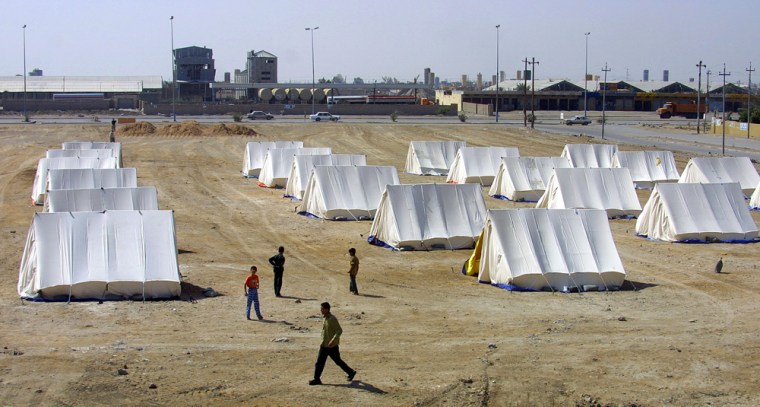The number of Iraqis fleeing their homes to escape sectarian violence has doubled in less than a month, reflecting a sharp worsening of the security situation across the country.
About 11,000 families, or roughly 60,000 people, have now been forced from their homes, compared with just over 30,000 in late March, a government official said on Thursday.
"Terrorism is still targeting Iraqis all over the country and this is the main cause behind the doubling in the number of displaced families," said Sattar Nawrouz, Sattar Nawrouz, spokesman for the Ministry of Displacement and Migration.
The bombing of an important Shiite shrine on Feb. 22 in the city of Samarra sparked an upsurge in sectarian bloodshed and stoked fears the country could slide into civil war.
"The number of displaced families is rising and we expect more families will flee their houses," Nawrouz said.
About 3,600 families have moved to Baghdad — ironically, the most dangerous province in the country — to stay with friends or relatives or in camps or squat in deserted buildings.
More than 5,000 fled to southern provinces and almost 2,500 to the north or west.
Redrawing neighborhoods
The cabinet has allocated $6 million and formed a committee under Deputy Prime Minister Ruz Nouri Shawes.
The bloodshed between Shiites and minority Sunni Arabs has prompted a redrawing of some neighborhoods, with minorities moving out and going to places where they are part of the majority community.
Militias roam the country warning families to leave or die and dozens of often mutilated bodies turn up every day.
The United States and other countries are pressing political leaders to end months of haggling and set up a rainbow government embracing Shiites, Sunnis and Kurds in a bid to end the killing.
Parliamentary elections were held in December, but politicians are still arguing over positions, including the prime ministership, and details of how a government of unity would share power.
